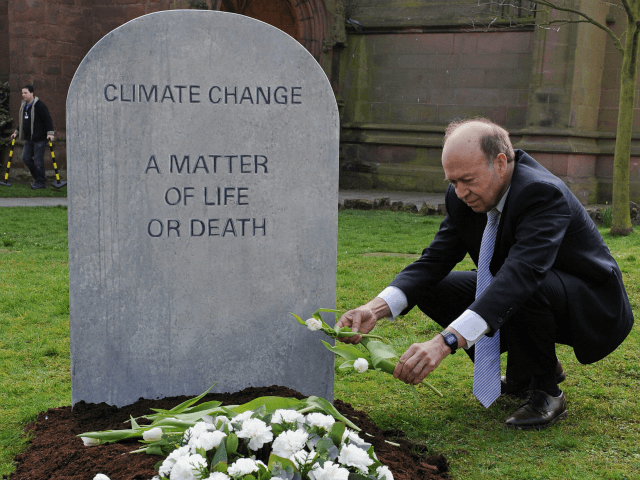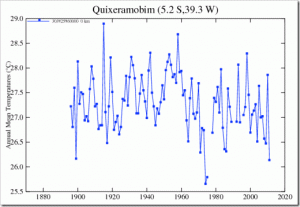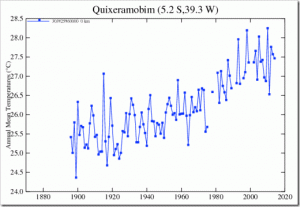A German professor has confirmed what skeptics from Britain to the US have long suspected: that NASA’s Goddard Institute of Space Studies has largely invented “global warming” by tampering with the raw temperature data records.
Professor Dr. Friedrich Karl Ewert is a retired geologist and data computation expert. He has painstakingly examined and tabulated all NASA GISS’s temperature data series, taken from 1153 stations and going back to 1881. His conclusion: that if you look at the raw data, as opposed to NASA’s revisions, you’ll find that since 1940 the planet has been cooling, not warming.
According to Günter Ederer, the German journalist who has reported on Ewert’s findings:
From the publicly available data, Ewert made an unbelievable discovery: Between the years 2010 and 2012 the data measured since 1881 were altered so that they showed a significant warming, especially after 1950. […] A comparison of the data from 2010 with the data of 2012 shows that NASA-GISS had altered its own datasets so that especially after WWII a clear warming appears – although it never existed.
Apart from Australia, the planet has in fact been on a cooling trend:
Using the NASA data from 2010 the surface temperature globally from 1940 until today has fallen by 1.110°C, and since 2000 it has fallen 0.4223°C […]. The cooling has hit every continent except for Australia, which warmed by 0.6339°C since 2000. The figures for Europe: From 1940 to 2010, using the data from 2010, there was a cooling of 0.5465°C and a cooling of 0.3739°C since 2000.
But the activist scientists at NASA GISS – initially led by James Hansen (pictured above), later by Gavin Schmidt – wanted the records they are in charge of maintaining to show warming not cooling, so they began systematically adjusting the data for various spurious reasons using ten different methods.
The most commonly used ones were:
• Reducing the annual mean in the early phase.
• Reducing the high values in the first warming phase.
• Increasing individual values during the second warming phase.
• Suppression of the second cooling phase starting in 1995.
• Shortening the early decades of the datasets.
• With the long-term datasets, even the first century was shortened.
Ewert’s findings echo that of US meteorologists Joseph D’Aleo and Anthony Watts who examined 6,000 NASA weather stations and found a host of irregularities both with the way they were sited and how the raw data had been adjusted to reflect such influences as the Urban Heat Island effect.
Britain’s Paul Homewood is also on NASA GISS’s case. Here he shows the shocking extent of the adjustments they have made to a temperature record in Brazil which has been altered so that a cooling trend becomes a warming trend.
Unadjusted temperature record: shows cooling trend.



COMMENTS
Please let us know if you're having issues with commenting.